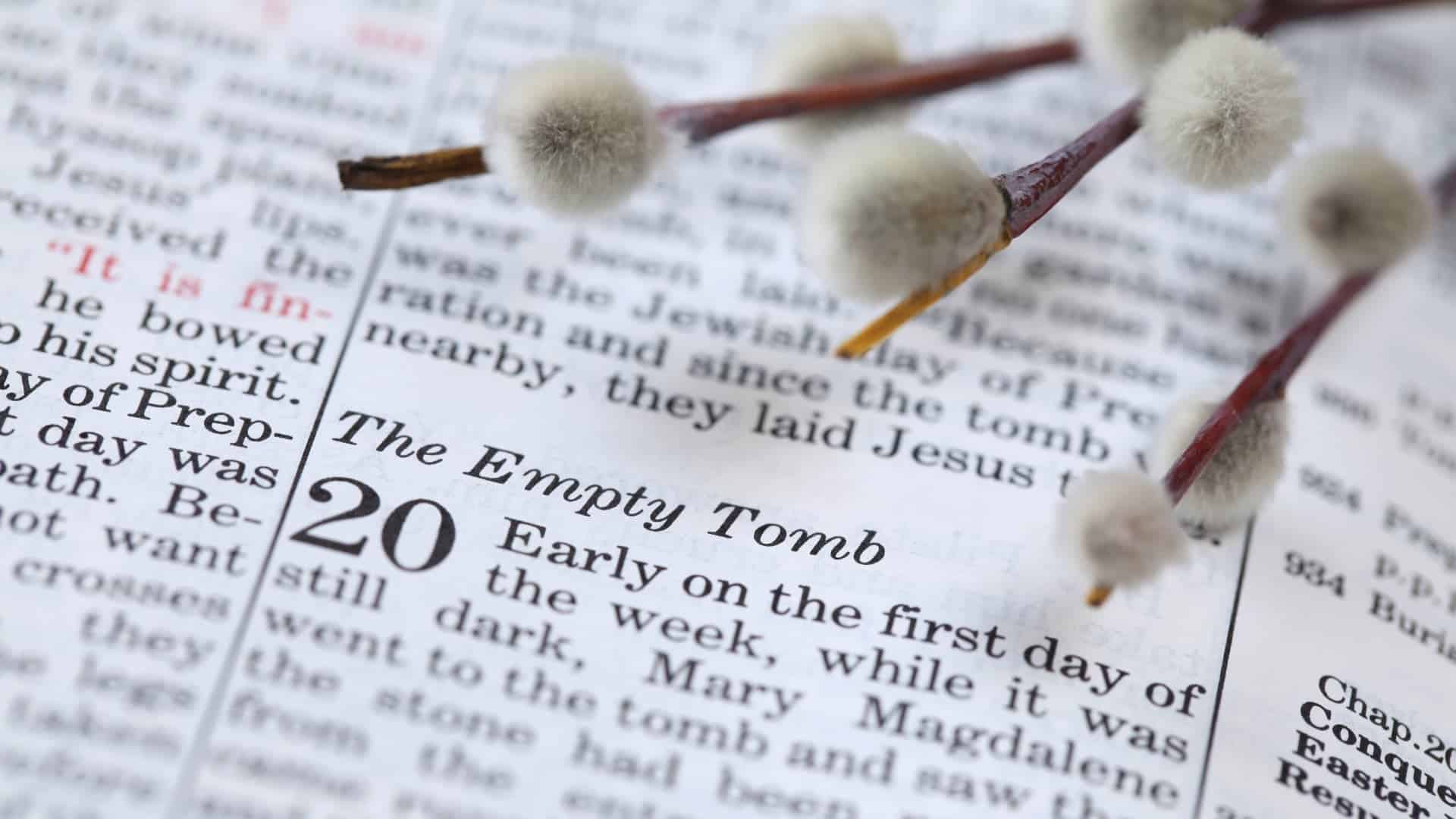A Heart to Love (John 13:21-38)

Big Idea: Jesus shows costly love to sinners, and calls them into a community defined by love.
I have an important question to ask you: What does Jesus think of you when you’re at your worst?
Sometimes we’re doing okay, more or less. Sometimes our lives are basically together. We wake up feeling okay. We read God’s Word. We pray. We love others. We live with integrity. We’re not perfect, but we’re pretty good. It’s relatively easy to believe that God is okay with us when our lives are functioning at a high level.
But what about when the wheels fall off? What do we do when we are at our lowest — when we keep sinning, feel spiritually lost, and go against what we know is right? What does Jesus think of us then?
I’ll tell you what I think. I believe that Jesus couldn’t love me at my worst. I believe, deep down, that Jesus must have reached the limits of his love and turned away from me. There’s no way that he could love me at my worst! And I believe you feel that way too. Deep down, we know there’s no way Jesus could love us at our ugliest.
Skye Jethani used to hold meetings with college students. The rules were simple: be honest, be gracious, and be present. The conversations would get real as students opened up about their habitual sins. A lot of them were especially concerned with two categories of sin: sex and drugs. A lot of them wrestled with Internet pornography, drugs, and alcohol. Jethani said, “I don’t want to know what your particular sin is. Instead, I want to know how you think God views you in the midst of your sin.”
The students became still. After a minute or two, the first one began to share. “I think God is disappointed with me,” he said. “I come from a great family with godly parents. I’ve been given everything imaginable, including a great education. And now I’m in college being prepared to impact the world for Christ. I think God’s really disappointed when I sin because ‘to whom much is given, much is expected.’ God expects better from me.”
“That’s how I feel too,” said another student. Jethani writes.
In one form or another, every student gave the same answer—God is disappointed with me because of my ongoing struggles with some behavior. He expects more from me. And he cannot use me to accomplish his work in the world until I clean up my act. (With)
Can you relate to that? I can. And that’s why I’m so grateful for this passage.
We’re in the Gospel of John. In the chapters we’re studying, we get one of the most intimate looks at the heart of Jesus for us. As Jesus is just hours away from his death, he opens his heart so that we can know what he’s really like.
This passage couldn’t be more important. Because in this passage, Jesus does two important things for us. And here’s the first:
Jesus shows his costly love to sinners.
Jesus has just finished washing the feet of the disciples as an expression of his love, and to give us a picture of what he was about to do for us by dying in our place. As he explained the meaning of his actions, Jesus included a sad statement: that one of them would betray him (13:18). In case the disciples didn’t catch this the first time, Jesus repeats this statement again in verse 21: “Truly, truly, I say to you, one of you will betray me.”
I want you to notice a couple of things about this.
First: Jesus is not surprised by our sin. Read this passage, and you see that we have a Savior who is under no illusions about what will happen. You have never done anything that has caught Jesus off-guard, or that he didn’t anticipate. Jesus is not surprised by the failures of humanity. David Cassidy puts it well: “God is not disillusioned with you. He had no illusions to begin with.”
But notice Jesus’ emotions too. Verses 21 says that Jesus was troubled in his spirit. The disciples could sense that there was something wrong. The betrayal that Jesus was about to suffer is the worst kind of betrayal, and Jesus suffered emotionally because of it. If you have ever experienced hurt because you’ve been betrayed by someone close to you, you know what Jesus was feeling. It is a big deal.
Which makes what happens next so surprising. Jesus, knowing what is about to happen, and experiencing the pain of that betrayal, extends kindness to the one who is about to betray him. When Jesus tells the disciples that one of them is about to betray him, they’re all shocked. They want to know who it is. Jesus says to John, the writer of this gospel, “It is he to whom I will give this morsel of bread when I have dipped it.” We then read, “So when he had dipped the morsel, he gave it to Judas, the son of Simon Iscariot” (John 13:26).
What is going on here? The disciples were all reclining on mats around a low table. John, perhaps Jesus’ favorite disciple, was on his right hand. But on his left in a place of honor was Judas. Jesus knew that Judas had plotted to betray him, and yet seated him in a place of prominence and favor.
In that culture, it was considered an act of favor for a host to take food off his own plate and offered it to a guest. At that moment, knowing what was in the heart of Judas, Jesus offered friendship, favor, and blessing to the one who would betray him. He extended another offer of mercy and grace. He extends his love right to the end. What an amazing picture of the heart of Christ. There was still time for Judas to change his course. But Judas threw away the opportunity.
What does Jesus think of you in the middle of your sin, when you’re at your worst? Jesus extends love, honor, friendship, and grace. When you are at your worst, Jesus keeps extending friendship and love to you. See Jesus’ heart for you. As Dane Ortlund says, “He never tires of sweeping us into his tender embrace. It is his very heart. It is what gets him out of bed in the morning.”
In case we don’t get it the first time, Jesus gives us a second example in this passage. In verses 36 to 41, Jesus speaks to Simon Peter. Peter is bold.
Peter said to him, “Lord, why can I not follow you now? I will lay down my life for you.” Jesus answered, “Will you lay down your life for me? Truly, truly, I say to you, the rooster will not crow till you have denied me three times. (13:37-38)
Again, Jesus is not surprised by sin. He knows what Peter is going to do. Jesus knows. And yet he doesn’t write Peter off. Near the end of this gospel, he restores Peter.
I want you to hear this: “Jesus is holiness, love, truth, grace, patience, mercy, peace, and everything else good that we could ever imagine” (James Montgomery Boice). He couldn’t be more tender toward us, even when we’re at our worst.
How do you respond to that kind of love? You can run away from it, like Judas did. To do that would be the greatest tragedy possible. There’s another option: you run to that love. You come to Jesus at your worst. You run into his open arms and accept the love and grace he offers you. And you keep running back. You don’t wait until you get your life together. You keep running to him, because this is his heart for you. Receive that gift. Don’t turn from it. Receive it today.
Some of you have already done this, and maybe you feel like Jesus has grown tired of you, that he is weary of you. He isn’t. Stay close to him. See his heart for you. His love for you doesn’t depend on how well you’re doing. Some of you have yet to run into Christ’s arms with your mess. Don’t wait another minute. Come with your sins. Come at your worst. Receive his love and grace today. He still offers favor and honor and love to those who don’t deserve it, and it’s yours for the taking.
Jesus shows costly love to sinners.
That’s the first thing that Jesus shows us in the passage. Here’s the second.
Jesus shows costly love to sinners, and calls them into a community defined by love.
In verses 34 and 35, Jesus says:
A new commandment I give to you, that you love one another: just as I have loved you, you also are to love one another. By this all people will know that you are my disciples, if you have love for one another.
Being loved by Jesus carries some big implications for us. It rewires our whole lives. You can’t be loved by Jesus like that without some things changing. We’ve already seen Jesus’ love in this passage. We’re about to see the fullest expression of that love revealed at the cross. We are recipients of the costly love that we didn’t deserve.
How should we respond? By loving one another just as Jesus has loved us. 1 John 4:19 puts it well: “We love because he first loved us.”
Let me put it a different way. The entire Christian life is about love. The whole thing. First, we receive a love that cost Jesus everything and that we didn’t deserve. And then that love puts us in a community where we love others in the same way that we’ve been loved, not because they deserve it, but because that’s how Jesus has loved us. The entire Christian life is about love.
We’ve seen the heart of Christ today, and it is love. Jesus’ love begins to get into the hard places of our lives. It begins to transform us and change us. And part of that change is that it creates a heart of love to others who have also received that love.
It’s like this. From all eternity, the Father, Son, and Spirit enjoyed a perfect relationship of mutual, self-giving, dynamic, pulsating love. “Within God is a community of persons pouring glorifying, joyful love into one another” (Tim Keller). Then God created us so that he could also include us in that love. But we rebelled. And Jesus came despite that as an act of costly love to bring us back in to that relationship of love. And as we’re brought in, the love that the Father, Son, and Spirit enjoy becomes part of our lives, and spills out in our relationship with others in his family. His love overflows in our lives so that we love others.
It’s so important that love becomes the distinguishing mark of the Christian. Only a few people saw Jesus wash the feet of the disciples. But millions of people are supposed to see that same sort of love exhibited in our lives as we love one another.
What does Jesus think of you when you’re at your worst? He loves you. Jesus shows costly love to sinners, and calls them into a community defined by love. Friends, receive that love today, and let that love transform your heart so that love becomes the distinguishing mark that you are a child of God.
Father, thank you for showing us that the heart of Jesus is a heart of love, even when we are at our worst. May we all run to that love today. And let that love overflow in our hearts and transform how we love others. We ask this in the name of the one who loves us, in the name of Jesus your Son. Amen.





